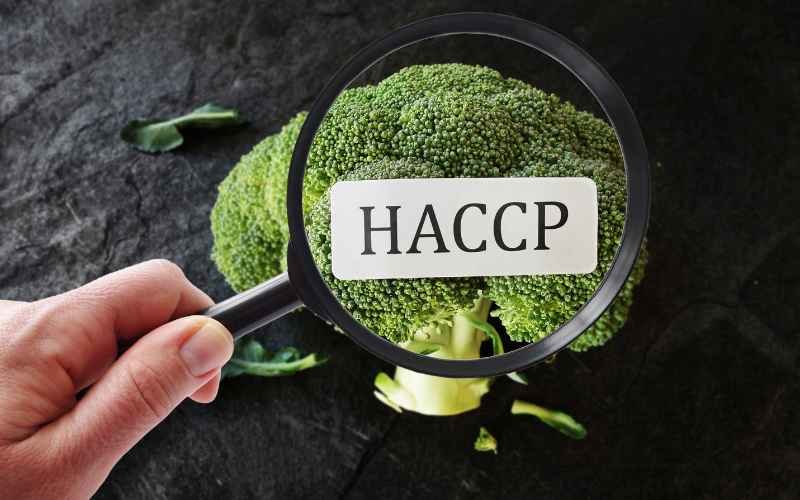
BLOG

The Role Of A HACCP Consultant
Ensuring food safety and compliance with regulatory standards is crucial for any food-related business. A HACCP consultant plays a pivotal role in helping organizations design, implement, and maintain effective Hazard Analysis and Critical Control Point (HACCP) systems. These systems are essential for identifying, assessing, and controlling potential hazards in food production and processing, safeguarding both public health and business integrity.
What is a HACCP Consultant?
A HACCP consultant is a food safety expert specializing in developing and implementing HACCP plans tailored to a business’s operations. They guide organizations through the entire HACCP process, from hazard analysis to monitoring and verification. Their expertise ensures compliance with food safety standards, reduces contamination risks, and enhances product quality.
Why Hire a HACCP Consultant?
Food businesses hire HACCP consultants to navigate the complexities of food safety compliance effectively. Benefits include:
- Expertise in hazard identification and control.
- Tailored HACCP plans suited to unique business needs.
- Reduced risks of foodborne illnesses and contamination.
Key Services Offered by HACCP Consultants
HACCP Consultancy and Implementation
HACCP consultants assess current operations, identify potential hazards, and develop robust HACCP plans to ensure safety and compliance.
Food Safety Auditing
As part of their services, Food Safety Consulting Services or food safety auditing companies conduct audits to identify gaps and areas for improvement, ensuring readiness for inspections.
GFSI and SQF Certification Assistance
A GFSI consultant or SQF consultant supports businesses aiming to achieve globally recognized certifications, enhancing credibility and marketability.
Training and Education
Consultants provide HACCP and food safety training to staff, ensuring they understand critical control points and safety protocols.
Support from Food Consulting Companies
Large consulting groups, such as HACCP consulting groups and food technology consulting firms, provide specialized expertise in areas like food processing, packaging, and supply chain management.
How to Become a Food Safety Consultant?
Becoming a consultant in food safety and offering Food Safety Consulting Services requires a mix of education, experience, and industry-specific skills. To specialize as a food safety consultant, follow these steps:
Education and Certifications
Work Experience
- Develop experience in roles like HACCP auditor, food technologist consultant, or quality assurance manager.
- Gain hands-on experience in food production, safety, or management. Roles like food technologist or quality assurance specialist are good entry points.
Stay Updated & Specialized Training
Build a Reputation & Develop Expertise
- Start with small projects, demonstrating your ability to identify risks, develop safety plans, and train employees effectively.
- Focus on a niche, such as food technology, safety audits, or nutrition consulting, to differentiate yourself.
Expand Your Services
- Build a portfolio showcasing your experience and start offering consulting services to food businesses or join established food consulting companies.
- Offer additional services like HACCP consulting, food safety audits, and GFSI certification assistance to broaden your client base.
How Much Do Food Consultants Charge?
The fees for food consultants vary based on their expertise, project scope, and industry standards:
- Hourly Rates: Typically range from $50 to $300 per hour, depending on specialization.
- Project-Based Fees: Can range from $1,000 to $10,000+ for comprehensive consulting, such as HACCP plan development or SQF certification assistance.
- Auditing and Training Costs: HACCP auditors or GFSI consultants may charge between $2,000 and $5,000 per audit or training session.
Factors influencing fees include location, business size, and the complexity of services required.
Key Contributions of HACCP Consultants
- Hazard Analysis and Plan Development: HACCP consultants design customized plans to identify and control potential food safety risks.
- Compliance Assistance: They ensure compliance with standards like HACCP, SQF, and GFSI, enhancing the business’s credibility.
- Training and Education: Consultants provide HACCP and good manufacturing practices training, equipping employees to maintain safety standards.
- Auditing and Verification: They conduct regular audits to identify gaps, ensure compliance, and prepare businesses for certification.
- Collaboration with Food Technology Consulting Groups: They collaborate with broader consulting groups and offer specialized services in food processing, technology, and packaging.
Conclusion
A HACCP consultant is indispensable for businesses aiming to ensure food safety, maintain compliance, and gain consumer trust. By collaborating with experts in HACCP consulting, food technology consulting, and food safety auditing companies, businesses can safeguard their operations and excel in the competitive food industry.
A HACCP consultant plays a critical role in the food industry by ensuring businesses meet safety standards, maintain compliance, and deliver high-quality products. Whether you’re a food business seeking guidance or an aspiring consultant, understanding this field is key to fostering trust and excellence in food safety.

HACCP Consultants FAQs
What is a HACCP consultant?
A HACCP consultant helps businesses develop and implement HACCP plans to ensure food safety and regulatory compliance.
How do I become a food consultant?
Obtain a degree in food science or nutrition, gain industry experience, and specialize in food safety or technology.
How much do food consultants charge?
Food safety consultancy fees range from $50 to $300 per hour or $1,000+ per project, depending on expertise and scope.
What certifications are needed for food safety consultants?
What industries benefit from HACCP consultants?
Food manufacturing, processing, packaging, and retail sectors benefit from Food Safety Consulting Services .
What is the role of a HACCP auditing company?
Auditing companies assess compliance, identify risks, and ensure readiness for certification.
How does GFSI consulting differ from HACCP consulting?
GFSI consulting focuses on achieving global safety certifications, while HACCP consulting addresses hazard control at critical points.
Can food technologists become consultants?
Yes, food technologists with industry experience can transition into consulting roles, offering expertise in safety and production optimization.
What is a food consulting company?
These food safety consulting companies provide specialized services like food safety audits, HACCP implementation, and product development for businesses.
How do food safety consultants add value?
They mitigate risks, ensure compliance, and improve product safety and quality, fostering consumer trust.
